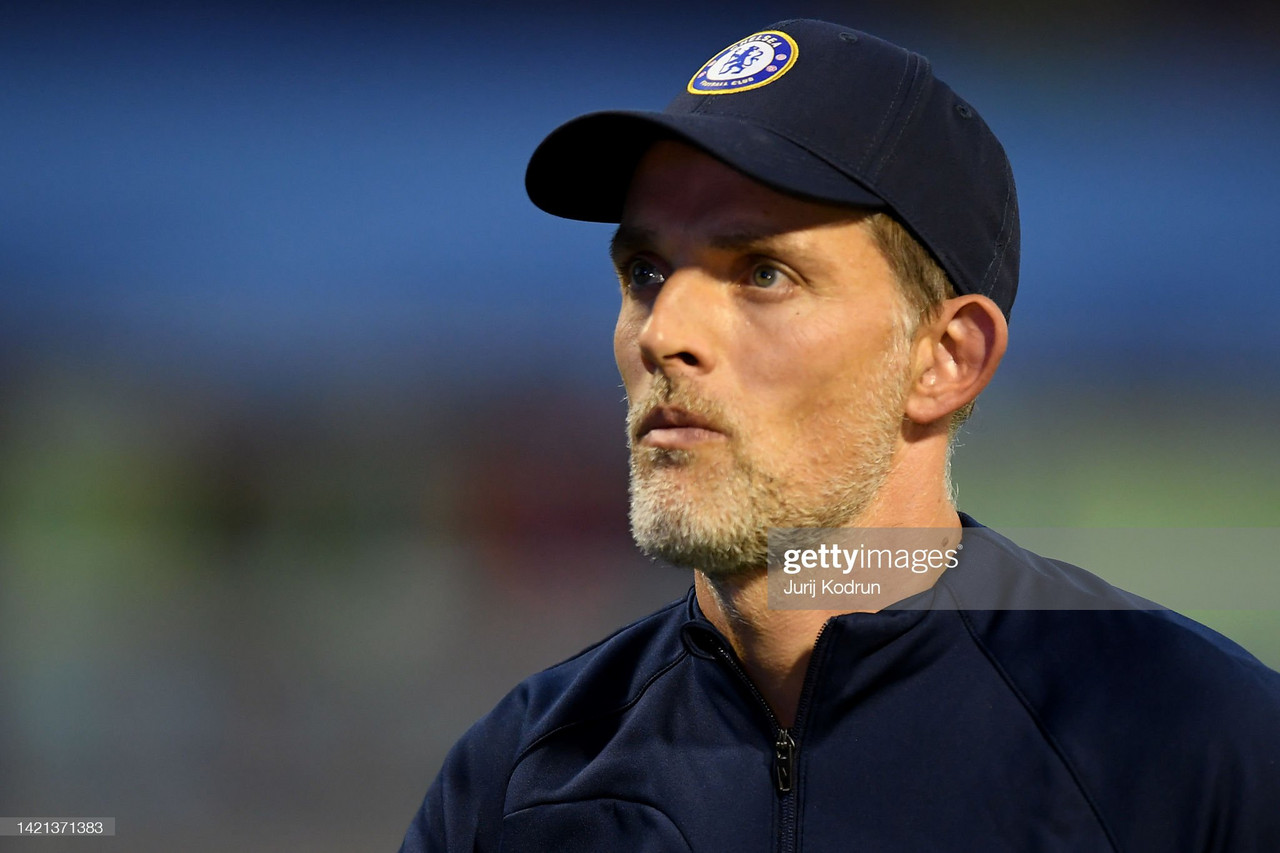It's quite hard to put into words just how unfathomable the decision by Chelsea to sack Thomas Tuchel is.
Unlike many other dismissals, this one was not a slow burner: a mere 14 and a half hours after the Blues had succumbed to a dreadful 1-0 defeat to Dinamo Zagreb, the German was gone.
This is not an article which attempts to argue that he should have stayed.
For what it's worth, I believe he ought to have been given more time than just the first month of a campaign in which the west London side accumulated the same number of points after six games in the Premier League as they did in the 2016/17 season, when they went on to win the title.
Not to mention the fact that this is a head coach that endured arguably the toughest circumstances of any other previous Chelsea boss, keeping the club going throughout the period in which it was sanctioned at the end of last season.
But, as I say, there are equal arguments for his removal too, namely the fact the team have won just three of their opening seven games, all of which were against sides currently in the bottom five places of the table.
It is not the actual decision itself - it is the context and timeframe within which it has taken place that lead me to one conclusion: the new ownership at Stamford Bridge do not know what they are doing.
Initial backing
Perhaps everyone should have seen this coming: Tuchel was hardly the most enthusiastic figure by May of this year, having lost two cup finals in the space of a few months to the same opponent, while just about clinging onto third place.
By the time Todd Boehly and co turned up, he had been under so much stress for so many months, the prospect of having to adapt to an entirely new regime's way of working was probably a pretty daunting one.
Yet he stayed on, and seemed optimistic about the future of the club, especially with multiple reports suggesting that, due to a lack of a sporting director at such short notice, Tuchel would be given effectively full control of choosing who to sign.
This was something relished by many Chelsea fans: never before had a manager received such overwhelming backing from the ownership.
So often it had been the same story under Roman Abramovich and Marina Granovskaia of, for want of a better word, forcing 'club signings' on reluctant managers who were forced to accept, or take the inevitable brunt of the Russian's ruthless sack hammer.
So, when Tuchel appeared to be getting the full commitment of Boehly's band of brothers (and sister, in Barbara Charone), it appeared that, for the first time in a long time, a long-term project could finally begin to be developed at Chelsea.
It wasn't just wishy-washy words and grand gestures either. The ownership put their money where their mouths were and spent nearly £300 million on players who, at least allegedly, Tuchel had asked for.
They listened to his advice on outgoings too, fully accepting of taking a massive financial hit on the likes of Romelu Lukaku and Timo Werner, as well as upsetting the fanbase by selling Billy Gilmour, on his say.
Less than one week ago, on Deadline Day (1 September), the backing was still very much evident, as Pierre-Emerick Aubameyang was brought in, specifically on the pretence that the striker had worked well with Tuchel when they were together at Borussia Dortmund.
The Gabonese forward must be wondering what on earth may lay in store for him now, having played a grand total of 59 minutes under the German's management.
Denis Zakaria, another late arrival, was yet to even feature for Tuchel's side.
And this is the crux of the issue: just six days ago, Chelsea were very much publicly behind Thomas Tuchel, despite the difficult start to the season that the team were having.

If anything, last weekend's fixture against West Ham should have allayed some concerns, even if the victory was rather fortuitous in the end.
Then there was last night's dismal showing in the Champions League, and, as already recounted, it proved to be the final straw for Tuchel's Chelsea reign.
Except, that is not the full story.
Contradictory decisions
If reports by David Ornstein of The Athletic are anything to go by (which they are), the writing was on the wall for Thomas Tuchel before even the Zagreb disaster, meaning that, at some point between 1 September and 6 September, the board made the decision that they would sack Tuchel.
Can’t help but feel this is a really, really bad idea for Chelsea. https://t.co/i9Ontkd7hI
— Noah Robson (@noahrobson_) September 1, 2022
To do so just hours after bringing in one of his top targets in Aubameyang wouldn't make sense: after all, if they were convinced he should go before then, why would they have spent money on a signing that is notorious for falling out with all coaches apart from Tuchel?
And to do so immediately after a win, however lucky, would be equally paradoxical.
So, in summary, there are two possible options: either they suddenly changed their minds between Deadline Day and the day the Blues flew out to Croatia, with the only significant event in that time being a victory, or they had always planned to remove the head coach ever since they arrived.
The former, whatever what you look at it, does not make sense, meaning it is only the latter option that remains.
Based on everything that has happened, it can only be assumed that the new ownership have had their doubts for an extended period of time.
How far back that doubt goes is uncertain - maybe they were planning on sticking with him for the long haul, until he kicked up a fuss about the travel on the US Tour?
Could it have been the antics on the touchline against Tottenham Hotspur that made them decide enough was enough?
Or, as feels most likely, was this a rush of blood decision which will prove to have pivotal consequences in the months ahead.
The problem is, by spending quite so much money on players specifically requested by Tuchel, any new coach that comes in will feel either compelled themselves to utilise them, or be nudged so aggressively by the board to do so that they have no other option.
Neither of these two outcomes are good.
It will result in poor relations between manager and players - the downfall of seemingly every single previous Chelsea head coach - and while things may seem rosy in the short term (see Tuchel's first six months in charge), another relapse seems almost inevitable.
To reiterate: this is not a piece which attempts to argue the sacking was wrong. What it does do is point out the clear ludicrousness of allowing a manager - who you were planning to get rid of - to control your transfer strategy.
If the decision had been coming, it should have been done earlier, before further arrivals could have taken place, and if it was a recent change of heart, then it could have waited until the upcoming international break at least.
Whoever now comes in - whether it's Graham Potter, Mauricio Pochettino, or another candidate, will inherit a squad designed entirely around the thinking of a different tactician, a different football mind, and a different strategy.
And while it is naive to suggest that such world class managers would not be able to incorporate any of the summer signings into their own plans, they clearly will not be used in the way in which they were initially planned to be, when such huge fees were spent on them.
A warning to others
The final thing to say is that it may well work out just fine in the end. With Chelsea, almost inexplicably at times, it often does.
But whatever way you look at this, right now it does not make sense.
Financially, hundreds of millions of pounds have now potentially been wasted.
Tactically, any new manager now has to implement their style instantly, rather than having a full pre-season to work on their plans.
And emotionally, it is a dagger through the hearts of many Chelsea fans who believed, given the backing he was afforded this summer, that Thomas Tuchel was here to stay.
Hindsight is a wonderful thing indeed, but I can't help but feel this will only cause further problems down the road for Chelsea - as such, this should be a warning to all other owners.
A warning, which spells out in the clearest possible terms, a masterclass in how not to run a football club.









































